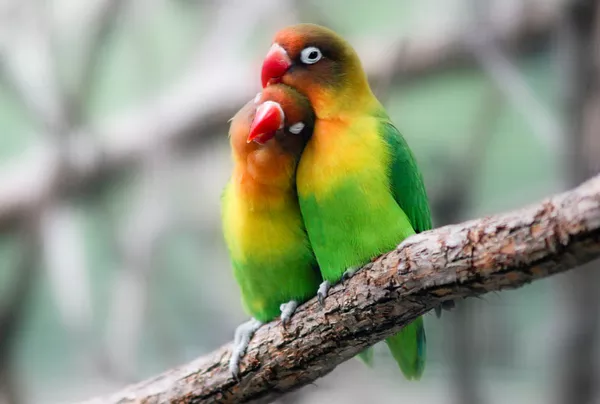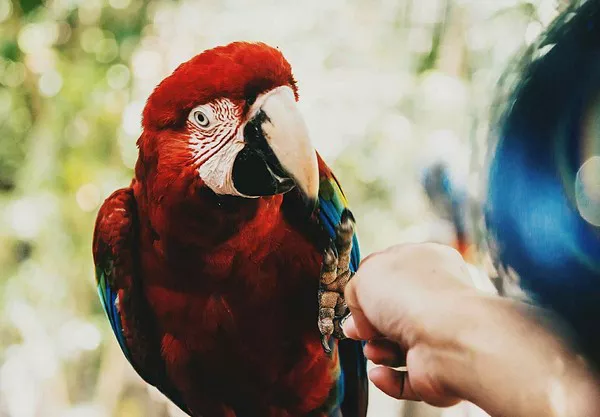Sun conures, known for their vibrant colors and playful personalities, are a popular choice for bird lovers. As pet owners, understanding the specific needs of these beautiful creatures is crucial to ensuring their health and happiness. One of the most important aspects of raising a baby sun conure is knowing when and how to feed them properly. This article delves deep into the subject of feeding baby sun conures, offering helpful insights to guide new pet owners through this crucial stage of their bird’s life.
Understanding the Sun Conure
Before diving into the specifics of baby sun conure care, it’s essential to understand the species. Sun conures (Aratinga solstitialis) are a type of parrot native to South America, known for their bright yellow, orange, and green feathers. They are a part of the larger conure family, which includes various species of small to medium-sized parrots. Sun conures are highly social, intelligent, and active birds that thrive in a stimulating environment.
As with all parrots, sun conures begin their lives entirely dependent on their parents for nourishment and care. In the wild, they are typically raised in nests, where they rely on the warmth and food provided by their mother. In captivity, however, it is up to the owner to ensure that these birds receive the proper nutrition and care.
The Importance of Proper Feeding
When raising baby sun conures, proper feeding is essential for their health and development. The right diet not only promotes strong growth but also helps avoid malnutrition and health problems later in life. Just like human infants, baby sun conures have specific dietary needs that evolve as they grow. These needs change over time, and recognizing when to adjust their food intake is key to their well-being.
Stages of Baby Sun Conure Growth and Feeding
The feeding requirements of a baby sun conure are heavily influenced by its age. Let’s break down the different stages of growth and the appropriate feeding schedule for each.
1. The First Week: The Neonatal Stage
During the first week of life, baby sun conures are entirely dependent on their parents or caretakers for food. They are born with their eyes closed, weak legs, and little ability to regulate their body temperature. At this point, the baby bird’s only nourishment comes from its mother’s crop milk or formula if hand-fed by a human.
Feeding Guidelines for Neonatal Sun Conures:
Type of Food: During the neonatal stage, baby sun conures need a high-protein, nutrient-rich formula. Commercial hand-feeding formulas for baby birds are designed specifically for conures and similar species.
Frequency of Feedings: Newborn baby sun conures need to be fed every 2 to 3 hours, including during the night. It is essential to feed them frequently to simulate the continuous feeding pattern they would experience in the wild.
Amount of Food: The amount of food given at each feeding depends on the bird’s size and weight. A general guideline is to offer 10-12% of the baby conure’s body weight in formula during each feeding. This can be measured by using a scale to weigh the baby bird and calculate the appropriate amount of food.
Temperature of the Formula: The formula must be warmed to approximately 104°F (40°C) to ensure it is safe and comfortable for the baby bird. Always test the temperature by placing a few drops on your wrist before feeding.
2. The Second Week: Development and Growth
By the second week, baby sun conures will begin to develop more physical strength. Their legs will start to gain muscle tone, and they may begin to open their eyes. The process of weaning begins during this stage, although baby conures still rely heavily on formula.
Feeding Guidelines for Week Two:
Type of Food: Continue feeding the high-protein hand-feeding formula. At this stage, you can begin introducing soft, finely mashed fruits or vegetables like banana, apple, and sweet potato to encourage exploration of solid foods.
Frequency of Feedings: The baby sun conure will require feedings every 4 hours during the day. Depending on the bird’s progress, you can begin to space out feedings a bit more. Nighttime feedings may still be necessary.
Amount of Food: As the baby bird grows, its nutritional needs increase. You can increase the amount of formula slightly, but it is essential to monitor the bird’s weight to avoid overfeeding or underfeeding.
3. The Third Week: Transition to Solid Foods
By the third week, baby sun conures are more active and inquisitive. They may begin to show interest in solid foods, although they will still require formula as their primary source of nutrition. The transition to eating more solid foods can vary from bird to bird, so patience is key.
Feeding Guidelines for Week Three:
Type of Food: Introduce more solid foods such as finely chopped vegetables, grains like quinoa, and small seeds. You can also offer mashed boiled eggs or soft bird pellets that are appropriate for baby birds.
Frequency of Feedings: At this stage, you can begin to decrease the frequency of formula feedings. A feeding schedule of every 6 hours may be appropriate, but it’s important to ensure the baby bird is eating enough solid food to supplement its formula intake.
Amount of Food: You will still be feeding a mixture of formula and solid foods. The amount of formula can gradually decrease as the baby conure eats more solid foods. However, the total daily intake should remain in line with its body weight needs.
4. The Fourth Week: Increased Independence
By the fourth week, baby sun conures are growing more independent and developing their ability to feed themselves. They may start to nibble on larger pieces of fruit and vegetables, and they may show interest in eating seeds.
Feeding Guidelines for Week Four:
Type of Food: Continue offering a variety of soft foods, including fruits, vegetables, and high-quality pellets. You can now introduce small amounts of seeds, although they should not be the primary food source at this stage.
Frequency of Feedings: Formula feedings can be reduced to 2 to 3 times a day, and you may begin to wean the bird off of formula completely if it is eating enough solid food.
Amount of Food: As the baby conure gets more independent, it may begin to regulate its own food intake. Ensure that fresh water is always available, and monitor the bird’s weight to ensure it is growing properly.
5. The Fifth and Sixth Weeks: Full Weaning
By the time your sun conure reaches 5 to 6 weeks old, it should be nearly fully weaned off formula and eating a wide variety of solid foods. At this point, feeding should primarily consist of fruits, vegetables, seeds, and pellets. A well-balanced diet is crucial at this stage to ensure proper growth and development.
Feeding Guidelines for Weeks Five and Six:
Type of Food: Your baby sun conure should now be eating mostly fruits, vegetables, seeds, and pellets. Fresh, nutritious options include apples, carrots, leafy greens, and a variety of bird-safe fruits. Avoid offering sugary or fatty foods, as they can lead to health problems.
Frequency of Feedings: Feed your sun conure 3 to 4 times a day, providing meals at regular intervals. Fresh food should be available throughout the day.
Amount of Food: At this stage, baby sun conures will have a better idea of how much food they need. Ensure that they are getting a balanced diet of fruits, vegetables, seeds, and pellets. Offer a variety of foods to prevent boredom and ensure they are getting all the necessary nutrients.
Signs That Your Baby Sun Conure is Ready to Wean
Not all baby sun conures will wean at the same rate, and it is important to monitor the bird’s progress and growth. Here are some signs that your baby conure may be ready to begin the weaning process:
Increased Interest in Solid Foods: If your baby conure is actively exploring and eating solid foods, it may be ready to start the weaning process.
Decreased Interest in Formula: If the bird is not finishing its formula feedings or seems less interested in the formula, it may be an indication that it is ready for solid food.
Weight Gain and Growth: Healthy baby sun conures should continue to grow steadily. If your baby is gaining weight and reaching developmental milestones, it is likely ready to transition to solid foods.
Conclusion
Raising a baby sun conure is a rewarding experience, but it comes with its own set of challenges. One of the most important aspects of caring for a baby bird is feeding it the right food at the right time. By following the proper feeding guidelines for each stage of development, you can ensure that your baby sun conure grows into a healthy, happy, and well-adjusted adult bird. Be patient, attentive, and responsive to your bird’s needs, and you will be rewarded with a loyal companion for many years to come.
Related Topics:





















